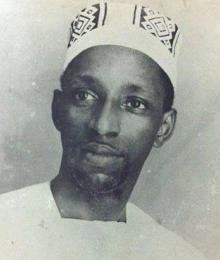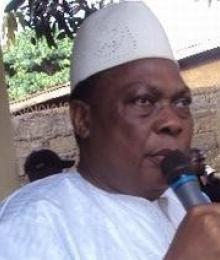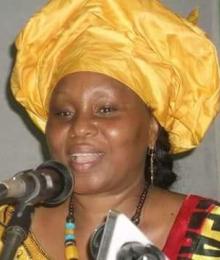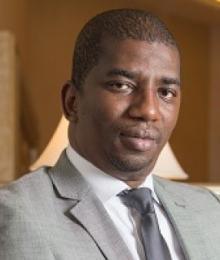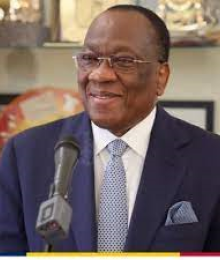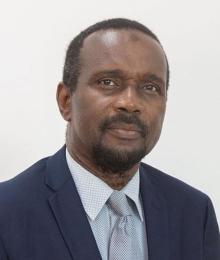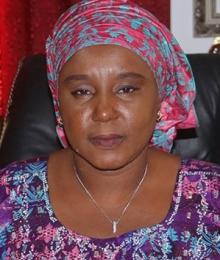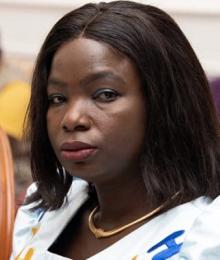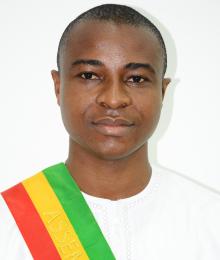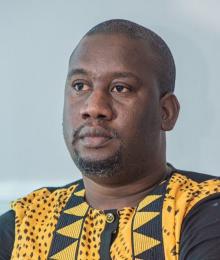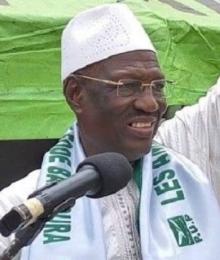
Fodé Bangoura is a heavyweight in the political scene of Guinea, known for being the right arm of former President Lansana Conté. This discreet man, from Koba-Tatema in Boffa Prefecture, has climbed the ladder of power to become secretary-general of the presidency with ministerial rank since 1997.
Considered the de facto number two of the Conté regime, he has been at the heart of many controversies and political crises, sometimes suffering dismissals before returning to the front posts. After Conté's death in 2008, Bangoura took over the reins of the Party of Unity and Progress (PUP), the former ruling formation, but provoked strong reluctance within the party that he still leads with an iron hand.
Introduction
Fodé Bangoura is a name that resonates strongly in the political landscape of Guinea. This shadow man, long regarded as the right arm of late President Lansana Conté, woven a complex web of power and influence during the tumultuous years of the Conté regime. Since his death in 2008, Bangoura has continued to play a key role in the Party of Unity and Progress (PUP), the former ruling political formation. This biography traces his twisted journey, mixing education, political rise, controversy and unexpected rebounds.
Education
Born in Koba-Tatema, Boffa Prefecture, Fodé Bangoura has a solid academic background. Graduated in history and geography from the Gamal Abdel Nasser Polytechnic Institute in Conakry, he then worked as a teacher at the Faculty of Social Sciences, passing his knowledge to future generations.
Professionnal career
Before becoming an indispensable figure of power, Bangoura climbed the ladder of public administration. In 1991, he was appointed Chief of the Office of the Secretary of State for Tourism and Hospitality, a position that enabled him to gain first-ever governmental experience. Subsequently, he served as Chief of Office of the Department of Commerce, Transport and Tourism from 1992 to 1994, thus expanding his expertise.
Political journey
It was in 1994 that Fodé Bangoura really began his brilliant ascension into the high spheres of power. Appointed as Director of the State Protocol to the Presidency, he quickly gained the confidence of Lansana Conté, who promoted him in 1997 to the strategic position of Secretary General of the presidency, with the rank of Minister.
Right arm of Lansana Conté
From that moment on, Fodé Bangoura became the man of trust by excellence of Lansana Conté. In 2005, he won an iron arm against Cellou Dalein Diallo, then Prime Minister, who was dismissed for "severe misconduct". Bangoura was then appointed Minister of State for Presidential Affairs, becoming the de facto number two in the state apparatus.
This privileged position has also been controversial. In 2006, he was opposed by Mamadou Sylla, CEO of the Futurelec company and a leading figure of the Guinean employers, on the basis of public debt. Bangoura was accused of orchestrating financial audits against Sylla's business, triggering a major political crisis.
Controversies under the Conté Regime
The years at the height of power were not a rest for Fodé Bangoura. In January 2007, a general strike by trade unions and the opposition shook the country, calling for an end to widespread corruption. In this tense context, Lansana Conté dismissed Bangoura, considered to be a supporter of the strikers, replacing him with Eugène Camara.
However, Bangoura remained an influential figure in the PUP, the ruling party founded by Conté. In 2014, the Strategic Sector Audit and Surveillance Committee (CASSSE) cited its name in audit reports on the Conakry-Niger railway, fueling suspicions of misappropriation.
At the head of the PUP after the death of Conté
After the death of Lansana Conté in December 2008, Fodé Bangoura remained a leading figure in the PUP. In July 2015, he took over the reins of the party, succeeding his missing mentor. However, this transition did not go smoothly, as some questioned his legitimacy to lead the political formation.
Growls at him
Under the chairmanship of Alpha Condé, Bangoura was first appointed Adviser in Administrative Affairs in January 2011, before being promoted in May 2021 to the position of Permanent Secretary of the Standing Framework for Political and Social Dialogue. Despite these appointments, a riot has developed within the PUP itself, with some activists demanding his departure from the party's chairmanship.
In August 2023, women's demonstrations of the PUP took place outside the party's headquarters in Conakry, demanding a congress to elect a new leader. Bangoura was accused of monopolizing power within the party well beyond his five-year regulatory term.
Faced with these criticisms, Bangoura proved inflexible, claiming that the PUP was "not for sale" and rejecting allegations that he had ceded the party to foreign interests. This internal crisis has revealed the deep divisions that have undermined the PUP since the disappearance of Lansana Conté.
Private life
Beyond his busy political career, little is known about Fodé Bangoura's private life. This discreet man, accustomed to the shadow of power, seems to have carefully preserved his intimacy, focusing on the games of influence and the intestinal struggles that have rhythmed his journey.
Conclusion
The trajectory of Fodé Bangoura illustrates the complex meanders of power in Guinea. A master of the art of political survival, this man has managed to remain at the top despite the storms and turmoil that have shaken the country. Whether as the right arm of Lansana Conté or taking the reins of the PUP after his death, Bangoura has always been a force to count on.
Today, while Guinea is trying to rebuild itself after years of turbulence, the future role of Fodé Bangoura remains unknown. Will he be able to resume the ranks of the PUP and regain a leading position on the political chessboard? Or will he be relegated to the forgetfulness of history, the victim of the same centrifugal forces that precipitated the fall of his mentor? Only the future will tell us, but one thing is certain: Fodé Bangoura will forever remain an emblematic figure in this crucial period of post-Conté Guinea.











